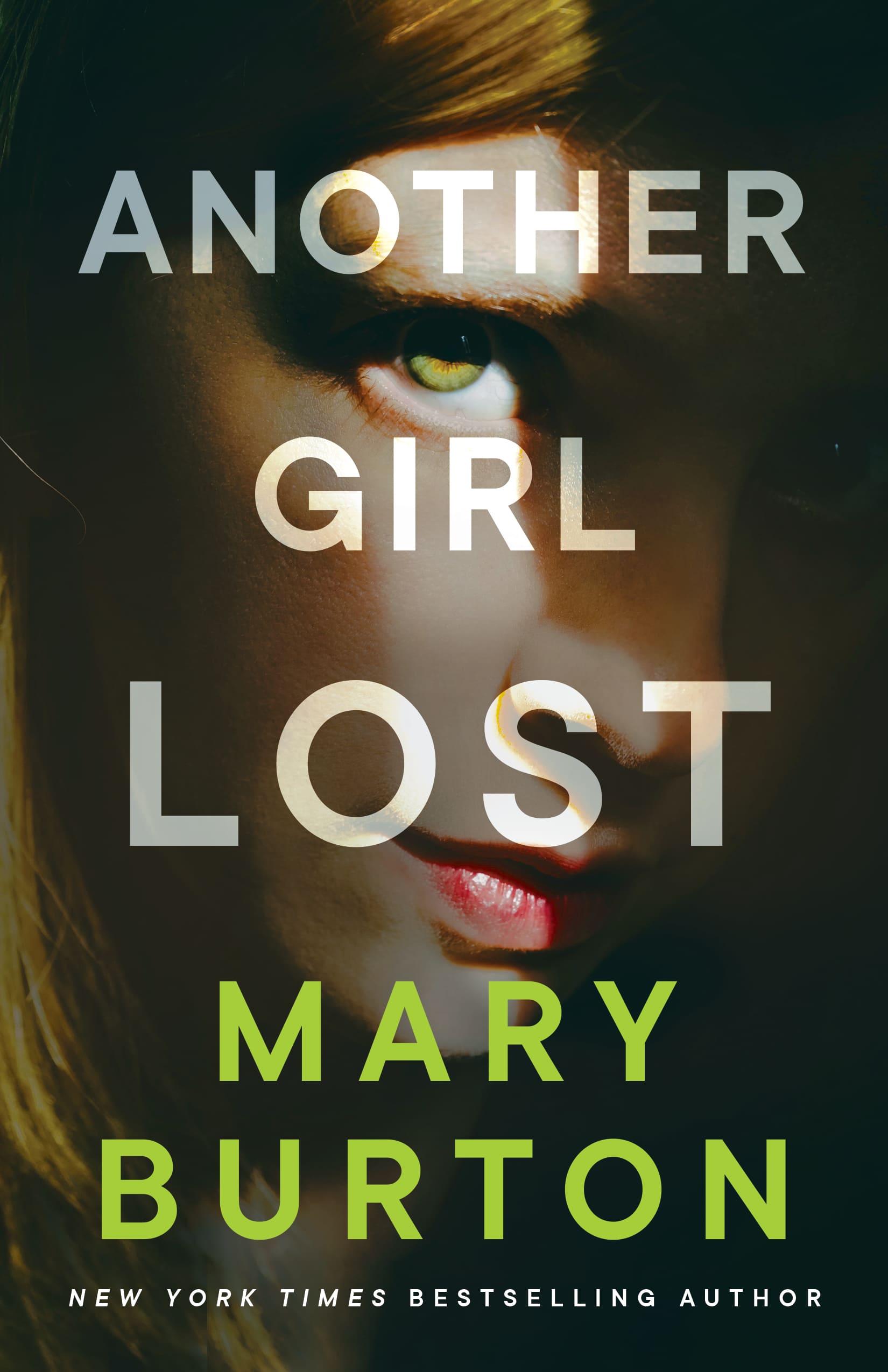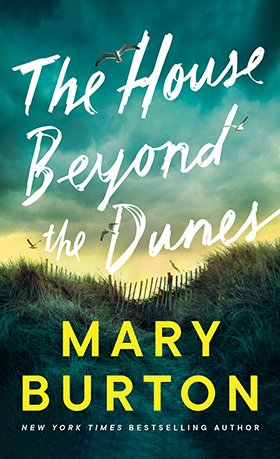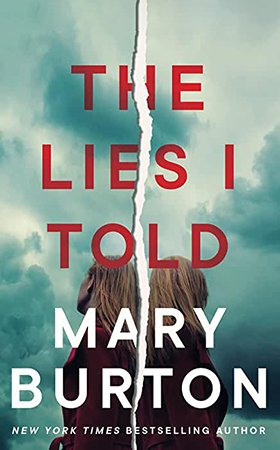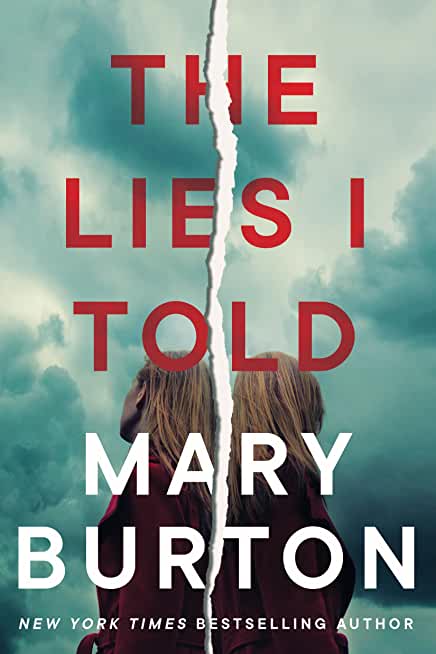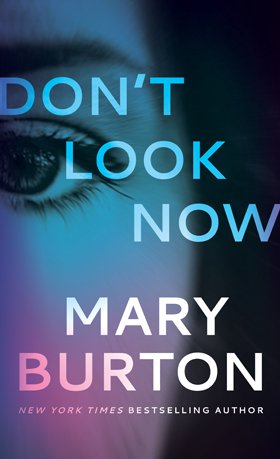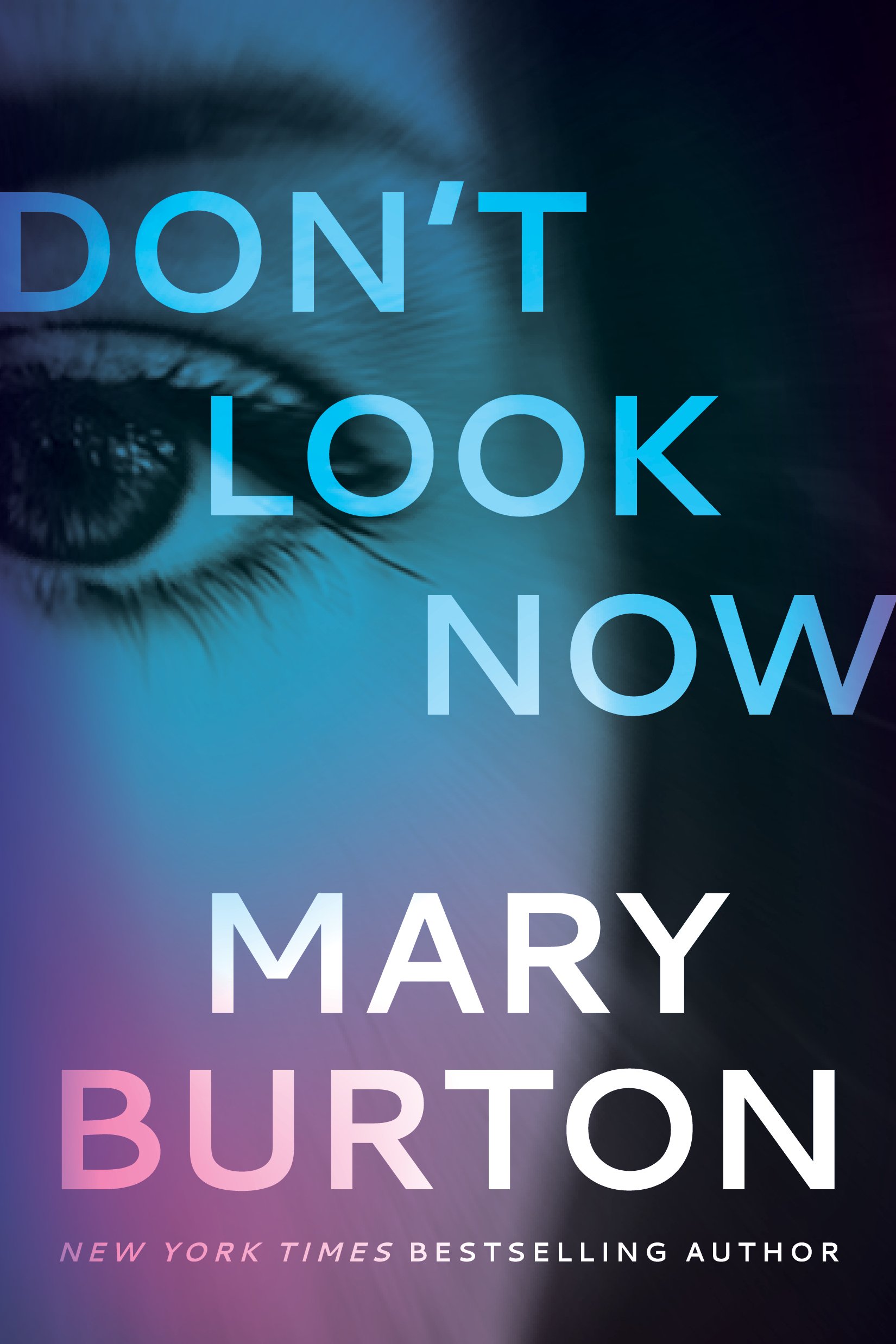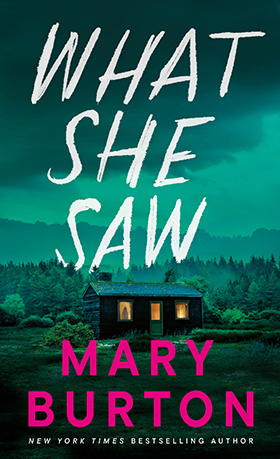
What She Saw
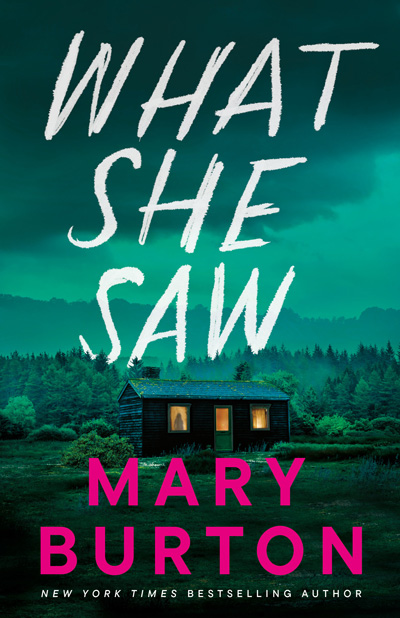
What She Saw
Buy it Now, Read it August 26, 2025
Amazon | Barnes & Noble | Books A Million | Bookshop | Audible
An investigative reporter returns to the scene of a decades-old crime to put her own unsettled past to rest in this chilling suspense novel by New York Times bestselling author Mary Burton.
Cold case reporter Sloane Grayson has come to a small mountain town in Virginia to solve a mystery.
Thirty years ago, her mother was one of four women who vanished during a music festival. The event’s promoter was eventually convicted of their murders, and Sheriff CJ Taggart closed the case. But for Sloane, it’s still open. Because the bodies were never found.
With Taggart now long dead, Sloane must make do with questioning the victims’ families and the few remaining witnesses once again. If they’re still willing to dredge up memories of a crime that made their town notorious. As for the incarcerated killer, he has always maintained his innocence. Sloane isn’t entirely convinced he’s lying.
Somewhere nearby, unmarked graves conceal the bones and secrets of the dead. Sloane will do anything to find them and unearth the truth, even if that means playing a dangerous game of cat and mouse with someone determined to stop her…
What She Saw Excerpt
Prologue
RAFE COLTON
Thursday, July 31, 2025, 11:00 a.m.
Red Onion State Prison, Pound, Virginia
In prison, I learned to appreciate the little things. Cracks in a wall. A bug scurrying along the floor. Underlined words in a dog-eared prison library book. Or when a prisoner’s smile turns feral. Cells don’t offer me the big picture, but they’ve taught me focus.
Front and center in my mind were the lumpy mattress in the prison hospital bed, the IVs running from my arms, and a machine beeping in time to my slow and sloppy heartbeat. The doctors said my cancer is worse. I’ll be dead in a year or two. Some say I should be relieved—this disease will end three decades in prison. But I liked living. And I wanted to squeeze out all I could of what was left.
A female nurse sat across the room, reading charts. Mousy brown hair was secured in a tight bun. She was younger than me, midthirties to early forties. Her skin still had some life in it, but it wasn’t glassy smooth like a teenager’s. A few lines had etched into creases around her eyes, marking a lifetime of disappointments. Half glasses reminded me of a librarian I’d had in middle school. Mrs. Davenport. Alone at night, I’ve dreamed about the nurse. What did she look like in her teen years? Was that hair silken? Were her curves tight and hot? Was her skin soft?
I rubbed my fingers against the coarse prison sheets and tried to remember the feel of a young woman’s smooth skin. Memories were too distant to grab.
Sighing, I curled my fingers into a fist. Time hadn’t been kind to me either. But it isn’t charitable to most of us.
“Darlin’, could you do me a favor?” I asked.
The nurse looked up.
“I sure could use a drink of water, darlin’.” My lips slid into a slight grin.
The nurse’s expression softened. Time hasn’t robbed me of all my charms. When I’d been younger, I’d enjoyed many appreciative glances from females. I missed the way their eyes glistened and their lips parted as they watched me move.
She filled a cup with water and carried it to my bedside. I took the plastic, careful to brush my fingers against hers. The V of her scrubs dipped low, as if she wanted me to see the curve of her breasts. Her boxy top doesn’t hide her narrow waist and rounded hips. And I bet her calves have a nice shape despite the comfortable black shoes.
She doesn’t wear perfume, and her skin carries the scent of a generic soap. Once I was surrounded by young women who smelled like mountain flowers and sex.
I sipped the water, letting the cool liquid roll down my dry throat. “Thank you, darlin’. I appreciate you.”
Her face remains neutral, but her eyes grow expectant. Her head tilts. She wants to smile, but she doesn’t.
I like knowing I can charm a woman with a grin. I’m old and dying, but still vain.
The door buzzer chimed. The moment broke. The nurse took the cup back and crossed to the security door. She opened it to a man dressed in a dark suit, white shirt, and sensible shoes. A cop. There’s no missing a law enforcement officer’s demeanor. The good ones are always tense, anticipating trouble and ready to spring. This guy is a tiger coiled, prepared to pounce.
We’ve met twice before. Sergeant Grant McKenna.
He hasn’t shared much of his own past, but he’s questioned me about the crimes that earned me a life sentence. The papers and the cops called me the Mountain Music Festival Killer. My victims were dubbed the Festival Four. Not the coolest monikers, but they stuck.
The powers-that-be tried and convicted me of four murders three decades ago. To this day, I still profess my innocence. I was framed. The cops have never found the bodies. And I argued the commonwealth’s case was based on physical evidence planted in my barn.
A prison guard stepped inside the clinic and stationed himself by the door.
I sat straighter, wincing as I adjusted the pillow behind my bony back. The handcuffs that bound my left wrist to the bed dug into my fragile skin.
Grant knows the basic facts about me and has a working knowledge of my case. I don’t know how deep he’s dived into the finer points, but he knows enough. I’m flattered he’s here. I haven’t had many visitors in recent years. There was a time when the Mountain Music Festival Killer eclipsed Charles Manson, Ted Bundy, and John Wayne Gacy.
According to the cops and press, my rampage spanned not years but a six-hour window. Psychologists assumed I would have killed more women if the cops hadn’t stopped me. My splash in the headlines was intense and brief. No one remembered me now. I’m not even a footnote. All that keeps me relevant are the missing bodies.
“Sergeant,” I said.
“Mr. Colton.” He extended his hand to me.
I took it, disarmed by this very human gesture. I’m amazed the guard allowed it. “How’s retirement?”
“Can’t complain.” Grant withdrew his hand and pulled up a chair.
“Washington, DC, right? Homicide?”
“Good memory.”
“Living on the pension now?”
Grant leveled his gaze on mine. “Basically.”
“Why aren’t you enjoying retirement?”
“Guys like you and me never really leave the game, do we?”
Many cops are filled with unspoken rage. Past traumas, unsolved cases, killers who got away—it all haunts them. They come here hoping that if they find the Mountain Music Festival bodies, they will find salvation.
However, the good cops hide their emotions well. And I’ve established that Grant is one of the good ones.
Grant watched me closely. “I hear you’re up for another parole hearing. Your chances look good this time.”
“I’m no threat to anyone,” I said. “Finishing out my days in the mountains isn’t too much to ask, is it?”
He regarded me for a beat. “You want to return to Dawson?”
“Yes.”
Grant never brought a notepad or file. But I suspected his memory was laser sharp. “The parole board will be reviewing your case next month. Compassionate releases are popular.”
Release. I’d heard the word before, but after too many disappointments, I didn’t dare allow any emotion. I crossed my fingers. “From your lips to God’s ears.”
Grant folded his arms over his chest. He was fit. Lifted weights. A runner. We’d made small talk about workouts during his last visit. I exercise any chance I get. It pays to be strong in here.
“I spoke at a conference a few weeks ago,” Grant said.
No small talk today. “About me, I hope?”
“Your case among others.”
“What was the theme?”
“Convictions without bodies.”
“Interesting. You get a lot of cases like that?”
“Enough.”
“Must be frustrating for the police and the families. No closure. And the judges and juries struggle to justify convictions like mine. How many of them wonder if they put away an innocent man like me?”
“I don’t know.” Grant sat back, unbuttoning his jacket. I appreciated that he dressed the part of a professional lawman.
“I bet a lot of them worry and wonder if they made the right call.”
“You willing to tell me where you buried those bodies?” Grant asked.
“No foreplay today?” I chuckled. “Direct. To the point. But girls like a little warm-up before the big event.”
Years ago, the police and prosecutors had dangled a reduced sentence if I told them where the bodies were. Even if I had known, I wouldn’t have told. Cops can lie, and I don’t trust them.
Plus, I’ve grown to enjoy the mystery of this unfinished story. All humans chase attention. We pursue it in different ways. Some get on the stage. Some publish. Others get tattooed or choose the perfect personalized license plate. Anyone who says they don’t want to be noticed doesn’t know how to escape the shadows.
My silence keeps me center stage. Maybe it’s not the attention I’d once craved, but visits like this break up the monotony of prison life. Beggars can’t be choosers.
“I’m-an-innocent-man.” I’d made this statement so many times, the words had conjoined.
“You’ve said that.”
“The Mountain Music Festival and the Festival Four victims are ancient history.”
“Not everyone has forgotten.”
“I bet you can count those that remember on one hand.”
“I’m driving to Dawson,” Grant said.
My memories of Dawson rely now on pictures I’ve clipped from articles about the Festival Four. Those images are black and white and at least a decade old. They don’t capture the vivid blue skies, the rolling green mountains, or the scent of honeysuckle in spring.
“It’s a small, middle-of-nowhere town.”
“I consider that an asset.”
His southern accent was faint but strengthened as he spoke about Dawson. I’d bet it was his hometown, or it reminded him of home. “You’re going to Dawson for peace and quiet?”
“There’s a writer working this story. I’ve met her. She’s sharp. Tenacious. She’s headed to Dawson.”
He’s teasing me. Dawson. The case. A woman. “You think she’ll do what cops and thirty-one couldn’t do?”
“She might.”
“Is she writing a book about me and all those missing women?”
“I don’t know. Maybe.”
Talking about a woman who was thinking about me was tantalizing. “You have a hard-on for her?”
He didn’t answer. Ah, a good southern gentleman.
I pressed, sensing a tender spot. “Are you trying to woo her with my deep dark confession?”
Grant shifted, smoothing a wrinkle from his suit jacket with long, tanned fingers. “Men have jumped through hoops for a pretty woman since Adam and Eve. I’m no different.”
Ah, this was the part where he pretended that he was my pal. My buddy. “What we won’t do for a woman.”
“You have a few words of wisdom?” Grant asked. “You were always good with the ladies.”
“It’s been thirty-one years. I’m out of practice.” But riding a woman came naturally, and I bet I’d have no problem if I ever had the chance again. “You overestimate me.”
He grinned. “I don’t think so.”
Grant was good. He was baiting a hook. And I shouldn’t have taken the bite, but I couldn’t resist. “Tell me more about this woman. Blond? Brunette? Tall? Short?” My mind runs wild with possibilities. “Does she have a name?”
“Her name is Sloane Grayson. Dark hair. Very attractive.” The cop’s voice softened just a fraction. Grant liked Sloane Grayson’s look.
“I don’t get to read too much true crime in prison. Is she a good writer?”
“She is.” Grant’s gaze and face remained relaxed. But his fingers opened and closed once into a fist.
“Tell Ms. Grayson I don’t know where the Festival Four are. A polygraph proved that.”
“I bet you run circles around a polygraph.”
Talk of Dawson and Sloane Grayson stirred a longing I’d suppressed for years. “If I don’t get out in time to join you in Dawson, keep me posted. I’d like to see what you unearth.” A smile tipped my lips. “Excuse the bad pun. I find amusement where I can.”


